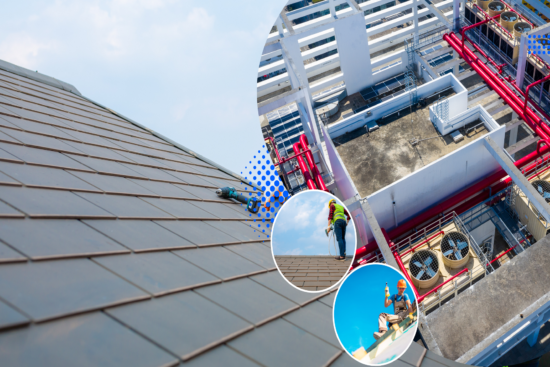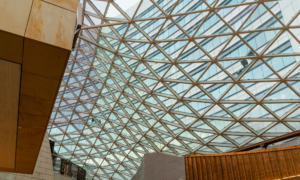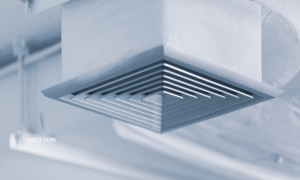© All Rights Reserved | Roof Replacement and Repair - Zaman Roofing LLC. | Website Design & CT SEO Powered by High Point SEO CT
- Google Rating5.0Based on 33 reviewsZaman Roofing - CT Roofing Contractors & Roof Repair5.0Sergey Y."Zaman Roofing” recently completed a roof replacement project in our condo complex, and we are extremely satisfied with their service. From start to finish, their team demonstrated professionalism, efficiency, and exceptional craftsmanship. They were prompt in their communication, providing detailed explanations and answering all our questions. The crew arrived on time, worked diligently, and completed the project within the estimated timeframe.Not only did Zaman Roofing exhibit outstanding technical skills, but they also ensured minimal disruption to our daily activities. They took great care to protect our property, cleaning up thoroughly each day and leaving no trace of debris behind.The quality of the new roof is outstanding. Zaman Roofing used top-grade materials and paid attention to every detail, resulting in a sturdy and visually appealing finished product. The roof has significantly enhanced the overall appearance of our condo complex.We would highly recommend Zaman Roofing to anyone in need of roofing services. Their professionalism, expertise, and attention to customer satisfaction make them a reliable choice for roof replacements. We are grateful for their excellent work and would not hesitate to hire them again in the future.Christopher Z.Zaman Roofing was AWESOME!!!! This is my third time doing a roof in CT on my third home and Zaman did an outstanding job on my rather unique roof line. They even replaced a skylight. I needed a Roof Contract in place before insurance would allow the purchase because the seller was a DeeBag. Zaman worked with my realtor, banker, etc and even waited patiently while the seller delayed the process by 4 months. The week I closed, Zaman Roofing was up and at em. Stripping, prepping and replacing. In and Out. Property was nice and clean after the work was complete. I would highly recommend.Steve TZaman Roofing, located in Berlin, CT, truly excels in providing top-notch roofing services. I am absolutely thrilled to give them a well-deserved 5-star review for their outstanding work. They have proven themselves as experts in roofing Berlin CT, and I couldn't be happier with the results.When it comes to roofing in Berlin, Zaman Roofing stands out from the competition. Their team of skilled professionals demonstrated exceptional attention to detail during the installation of my new roof. They meticulously handled every aspect of the project, ensuring both aesthetics and durability were top-notch.What impressed me the most was Zaman Roofing's commitment to customer satisfaction. From my initial contact with them, they were responsive, courteous, and eager to understand my specific roofing needs in Berlin. Their exceptional customer service throughout the entire process made me feel valued as a client.Zaman Roofing's expertise in roofing Berlin is truly commendable. They have an extensive portfolio of successful projects throughout Berlin, CT, showcasing their skill and knowledge in a variety of roofing styles and materials. Regardless of the complexity of the job, they have the necessary resources to deliver exceptional results.I cannot emphasize enough how satisfied I am with Zaman Roofing's services in Berlin, CT. Their professionalism, reliability, and dedication to their craft are unparalleled. If you're searching for exceptional roofing services in Berlin CT, Zaman Roofing is the company to choose. They will exceed your expectations in every way.In conclusion, Zaman Roofing unquestionably deserves a stellar 5-star rating for their exemplary roofing services in Berlin, CT. Their expertise in roofing Berlin and roofing Berlin CT shines through in their exceptional workmanship and customer service. I highly recommend Zaman Roofing for all your roofing needs.Gary G.Zaman replaced the roof on my 2,200 sq. ft. colonial in 2015. The workmanship was perfect. Unfortunately, over time, the top-of-the line shingles discolored. He was totally supportive in getting the manufacturer to replace them at no cost to me. He just replaced the roof with the new shingles. It was another perfect job. It was completed in one day. The crew was great and they cleaned the area spotless.Chris DWe used Zaman Roofing for our Roof and Gutter Replacement, I acquired 5 quotes for the work and found Zaman to be the most reasonable, it was a Good Decision to choose Zaman Roofing, Seweryn was Professional in every aspect and the Clean-up was nothing short of Amazing, I would Highly Recommend using Zaman RoofingRobert D.Excellent Service and Value - great crew and easy to deal with - highly recommended !Sunghoon P.Great work and reasonable price. I am so happy with their service. I asked a bunch of questions before and after the service and his responses were very prompt and straight to the point. Highly recommend.Adrienne M.I am so pleased that I used this company. My new roof looks fantastic. Such a hard working crew. Seweryn was informative and professional. Price was very completive. Don't hesitate to use them you will be very satisfied. Highly recommend!Nancy M.Good communication, timely response and knowledgeable. Very happy with our experience and highly recommend this company.Beata M.We used Zaman for our roof replacement recently and are very pleased. They replaced our roof in one day and gave us a very competitive quote. Good quality of work. Highly recommended.Lori K.They were here when they said they would. Professional & left everything neat ,cleaned up everything. They were in & out in a day & a half. Would recommend Zaman roifing.Dan R.A+ service, professional and quick response time.Anna G.Zaman and his crew provide great workmanship they installed new roofs they take great pride in the work they do. They were punctual and did a amazing job with the roof installation and clean up. Highly recommend Zaman Roofing to family and friends. Thank you for the opportunity to work with such a amazing contractorScott M.Awesome contractor, I would highly recommend him to family & friends. Seweryn & his crew were here on time & worked diligently. They were the happiest workers I've ever dealt with (I am a former construction project manager with the Federal government). Any & all questions were answered. My neighbors couldn't believe they finished the job in one day & complimented how great the new roof looks.Clement D.Great roofing contractors. I love to recommend it to my friends and family.Karen 9.With the quality, price, timeliness, all round nice guy and great crew, Zaman Roofing LLC is what other companies aspire to be.... Clean, helpful and a pleasure to recommend....james C.Excellent experience from start to finish, all appointments and work times met in a timely fashion, workmanship and clean up left nothing to be desired.Would be a definite recommendation, very pleased.Margaret B.I had obtained multiple quotes and did my due diligence research and Seweryn Zaman came back with fair price and good recommendations. He was professional, explained everything that he was going to do and never once he rushed me during decision process. He showed up on time with his hard working crew and finished my roof in one day. I was amazed with his crew who worked like busy bees. Very impressed with the clean up process and the end product. Two months after he finished my roof he was still helping me deal with the insurance company making sure I had everything I needed. Thank you SewerynSteve B.Very professional and easy to work. The crew came in, replaced my roof and then cleaned up everything! Highly recommended.Jim O.Competitive quote among four others. Seweryn Zaman provided larger color samples of the shingle colors we were interested in. He obtained the building permit, showed up on the day expected with his entire crew. Our older roof was on 24" trusses and needed more plywood replaced than anticipated. He got the additional sheets replaced on the day of the re-roofing. The crew worked with him late until the job was done and picked up every piece of old debris. The roof passed final town inspection with no concerns. Zaman Roofing is easy to deal with; he's responsive on text messages and phone calls. I used them in the past for an emergency repair and he found a well-hidden leak from the builder.Dale C.The crews did a good job, and the leader of the crew did a great job when they replaced the roof of my house in Farming on 7/6&7 this year. When they worked on the project, they worked professionally and in detail. We are very pleased with the work they have done, and highly recommend people to have the company worked on their roof projects.Forrest B.Zaman's was very professional, excellent quality of work and very responsive to our needs. This roofing experience was excellent from start to finish and provided an excellent value. Would certainly recommend them to any friend.Yonatan M.We used Zaman Roofing to replace our roof in 2019 and could not be happier with the service and product. A highly professional company and great personal interaction with the owner. The workers took great care of our landscaping, and the owner was there frequently to supervise the work and take care of finishing touches like flashing the chimney. We have had zero issues since then and highly recommend this company.Quinn V.Zaman was awesome. He was communicative, on-time, and was able to give me a quick inspection of our roof despite the rain. I rarely have a contractor tell me that I didn't need to spend any money, but Zaman told me my roof was fine for the next several years.magdalena K.We recently used Zaman Roofing to replace our 26-year-old roof. Right from the start they were great! Sevy was extremely professional and knowledgeable and gave us a great quote. Everything was done as they described and the final project looked great. The owner was on the job from start to finish as he promised.Ariadna G.Our experience with Zaman Roofing was excellent. I was very impressed with both their work and their customer service. Seweryn was very knowledgeable and professional.Larry G.What a wonderful business. Very responsive. They showed up exactly when expected, completed the project quickly and accurately and left no trace after clean up. All with a very competitive price. I would highly recommend Zaman to anyone looking to have roofing work done.STEVE R.I was very pleased with the roof and gutter repairs performed by Zaman Roofing on two of my buildings. Good workmanship and fair prices, I would recommend and use again.Danielle D.These guys stripped and reshuffled my roof is 1 day! They did an awesome job. Roof is beautiful. He uses a dump trailer which is great and they cleaned up well. Very happy with the work. Also pricing was fair.

The Effects of a Faulty HVAC System on Your Commercial Roof
Category: Roofing • August 14, 2023
Welcome to our latest blog post, where we’ll explore commercial roofing and how a defective HVAC system affects it. As business owners or property managers, you must grasp how these two components operate together flawlessly.
Flat and metal commercial roofs each have their own benefits and drawbacks. No matter what type you have, your HVAC system is important to its integrity.
We will discuss ways to prevent HVAC system failures and their possible damage.
The Different types of commercial roofs
Each form of commercial roof has its own qualities and considerations. Flat roofs are popular in warehouses and office buildings. Simple and easy to install, flat roofs are.
Metal roofs are also popular for commercial buildings. These roofs are long-lasting and weatherproof. Industries that prioritize fire prevention and energy efficiency employ metal roofs.
Built-up roofing (BUR) uses many layers of bitumen and reinforcing fibers. Waterproofing makes this roof appropriate for places with significant rainfall or snowfall.
Due to their flexibility and ease of installation, single-ply membrane roofing systems have grown in popularity. EPDM, PVC, and TPO can be used to make them.
Environmentally concerned enterprises are also using green roofs. Urban living roofs insulate, minimize stormwater runoff, improve air quality, and create green spaces.
Whatever type you choose for your commercial building’s roof, consider climate, budget, and maintenance. Each type has advantages; selecting the proper match will protect your building and suit your needs.
The effects of a faulty HVAC system
A bad HVAC system might damage a commercial roof. Increased energy usage is a major effect. A malfunctioning HVAC system must work harder to maintain the building’s temperature. This system strain increases energy use and company owner utility bills.
Poor HVAC systems cause moisture buildup. Leaks or system failures might let water into the roof. Moisture can harm insulation and undermine the roof over time.
Mold development can result from defective HVAC systems and water damage. Mold spores thrive in moisture buildup, posing major health concerns to building inhabitants.
An unreliable HVAC system can also cause uneven heating and cooling in a commercial building. This temperature distribution mismatch may cause employee or consumer discomfort and lower productivity.
Without regular maintenance and repairs, an HVAC system will last much longer. Faulty equipment that is not fixed quickly will need more extensive repairs or replacement.
To prevent these harmful impacts on your commercial roof from a defective HVAC system, regular inspections and maintenance by skilled personnel are essential. Proactively maintaining your HVAC equipment will maximize performance and longevity and minimize damage to your commercial roof investment.
How to prevent a faulty HVAC system
Maintaining your commercial roof requires preventing HVAC system failure. Avoid problems and prolong the life of your HVAC system with these recommendations.
Your HVAC system needs regular maintenance. Routine inspections and tune-ups with a competent technician can uncover potential issues before they escalate. This will maximize HVAC efficiency and prevent costly repairs.
Air filters should be replaced routinely. Clogged filters restrict airflow, straining your HVAC unit and perhaps causing malfunctions. Simply changing these filters regularly can greatly reduce issues.
Additionally, monitor any strange HVAC noises or scents. These may indicate urgent difficulties. Call a technician immediately to address danger indications.
Keep vents and registers clear of furniture and other obstructions. Blocked vents reduce airflow and stress the HVAC system.
Consider installing programmable thermostats or smart controls in your commercial area to improve temperature regulation and energy efficiency.
Commercial roofing maintenance tips
Commercial roofs need upkeep to last and perform well. These tips will keep your commercial roof in great shape for years.
Regular Inspections: Hire a roofing contractor to spot problems early. This will prevent minor issues from becoming serious ones.
Remove leaves, branches, and dirt from the roof regularly. Water accumulating on the roof from clogged drains and gutters can cause leaks and structural damage.
Address Leaks: If you see water stains or damp ceilings, fix them immediately. Leaks can harm your roof and interior if ignored.
Trim Overhanging Branches: Storms and severe winds can cause tree branches to fall on commercial roofs. Trim them frequently to prevent falling limb harm.
Maintain HVAC Systems: Avoid roof condensation by maintaining your HVAC systems. Unchecked condensation can cause mold and roof degradation.
Clear Roof Drains: Blocked drains can create water back up and pooling, causing flat roof ponding and winter ice jams. Keep drainage systems free at all times.
Preventive Maintenance Programs: Join a trusted roofing contractor’s program. Regular inspections, scheduled maintenance, and emergency service are typical of these programs.
Conclusion
A healthy HVAC system is essential for your commercial roof’s longevity. A defective HVAC system can cause moisture buildup, structural damage, and higher energy expenses. You may prevent these issues and prolong the life of your HVAC system and commercial roof by knowing the impacts of a malfunctioning HVAC system.
HVAC difficulties can be avoided with regular maintenance. Schedule regular inspections with professionals who can spot issues early. Moisture or leaks near vents or ducts may indicate a system issue that needs prompt repair.
Commercial roofing care is essential in addition to inspections. To avoid roof water collecting, routinely clean gutters and drains. Repair roofing material damage immediately.
Addressing HVAC issues quickly and being proactive about commercial roofing repair can reduce the impact of a defective HVAC system on your building’s structure and performance.
To protect your commercial roof and efficient HVAC system, prevention is always better than cure. Implement proper maintenance procedures today to avoid complications!




